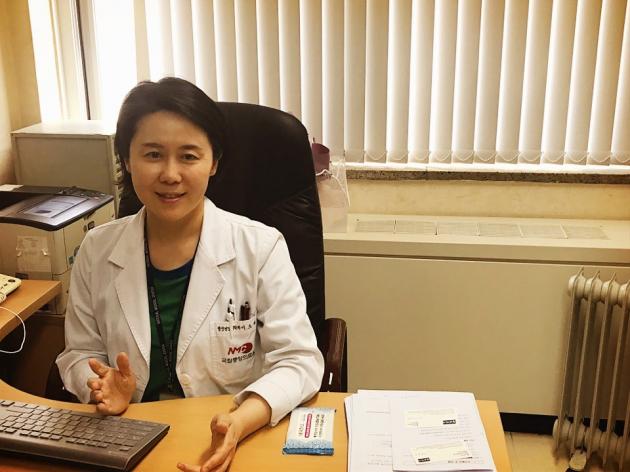The ongoing rapprochement between the two Koreas is raising public interest in North Korean people, including the health of more than 30,000 North Korean defectors living in South Korea.
The number of North Korean defectors has increased steadily since the 1990s to surpass 30,000 last year. The South Korean government has worked to enact laws supporting North Koreans to settle down in the South, which, however, are viewed as insufficient by defectors and experts alike.
According to a survey cited in a report by the Ministry of Unification, 17.9 percent of North Korean defectors said healthcare was the most desired support, followed by housing support with 13.2 percent, financial support with 12.7 percent, and educational support with 12 percent.
“The medical demand of North Korean refugees was great in 2006. Defectors who were too busy just getting by started wanting to get health checkups and get treatment after coming to South Korea, said Lee So-hee, director of the National Medical Center (NMC)’s Reunification Health and Welfare Center and member of the Korean Neuropsychiatric Association. “The NMC has for the past decade has acted as a major public institution treating North Korean defectors.”

Among other issues, North Korean defectors have a variety of health problems that act as barriers to adjusting to the South Korean society. However, North Korean defectors have faced difficulties in getting treatment due to financial, social, and cultural reasons. A 2017 survey by the Korea Hana Korea Foundation, showed about 10 percent of North Koreans said they could not go to the hospital when they wanted to because they couldn’t afford treatment.
As for what type of treatment they got, defectors said they went to the department of obstetrics and gynecology, orthopedic surgery, gastroenterology, psychiatry and neurology, according to Professor Lee.
For the department of gynecology, most went for maintenance before giving birth, regular examination, vaginitis, ovarian cysts, and uterine cervical dysplasia. In the department of orthopedics, spinal stenosis was the most common ailment, followed by backaches, knee pain, and joint pain.
The defectors also commonly visited the department of gastroenterology for gastroenteritis (980 cases), hepatitis B (589 cases), reflux esophagitis (540 cases), liver cirrhosis (337 cases), and stomachache (199 cases).
“In regards to health, many North Korean defectors have hepatitis that is not well controlled. Some have rare types such as hepatitis D. Liver conditions, spinal disease and tuberculosis are some of the common ailments,” Lee said.
In the department of psychiatry, the paper noted 1,695 cases of depression, 337 cases of regular tests, 305 cases of post-traumatic stress disorder, 109 cases of insomnia, and 104 cases of anxiety.
■ Related : North Korean defector: I had reoccurring nightmares, like everyone else
Clashes of healthcare systems and cultures
“Many North Korean defectors have hepatitis poorly controlled. In South Korea, early diagnosis and early treatment are being made properly, so things do not get out of hand. However, many North Korean defectors have complications that include spine deformations and trouble walking due to leaving the condition untreated,” Lee said.
Doctors here are often surprised. At that stage, it requires an experienced physician to treat the complicated case, she added.
South Korean doctors have also cited difficulties in communication due to the slight differences in language and culture that leads to a lack of trust between the physician and patient.
“North Koreans do not have the same knowledge base as we do, and there’s a lot of anxiety and distrust. Sometimes they don’t tell doctors everything because they are scared of how they will be perceived and they’re not honest about their condition,” Lee pointed out. “Some also tend to exaggerate their conditions and are rather emotional, expressing themselves aggressively to get across that they’re very sick and need treatment.”
Professor Lee expected a clash between the entirely public healthcare system of the North and the mostly private hospital network of the South.
“A large majority of defectors rely on free healthcare especially considering the financial situation for most. North Korean healthcare, which is all public, is also all ‘free,’ whereas in the South people are used to paying for hospital visits. People in the South know they need to have money to get treatment. North Koreans will not be used to this kind of system upon reunification,” Professor Lee said.
In addition to the payment system, Professor Lee pointed out that North Korea does not have accurate data on the health and welfare of its citizens, which should be one of the first tasks to be tackled.
“We can’t get the statistics. Right now, the suicide rate in North Korea stands at 0 percent. If you listen to the stories from people in real life, it is in part because people cannot talk about suicide and because it’s a felony that can impact the person’s family,” Lee said.
“Regarding mental illness, treatment revolves around segregating and stigmatizing the mentally sick is prevalent. This requires a real-life survey but how and if it will be possible remains uncertain,” she said.
Different infectious disease types such as multidrug-resistant tuberculosis of North Korea and different strains of diseases also could cause a crisis upon reunification. A sudden increase in exchanges between the North and the South and a lack of immunity to certain diseases could prove to be fatal if bacteria or virus start spreading.
“Even if reunification does not happen right away, the start of the inter-Korean exchanges, which involves lots of going back and forth, could lead to the spread of infectious diseases, as was the case with the MERS crisis here,” Lee said.
Treatment will also need more than prescribing drugs to encompass getting patients to take medications and monitoring compliance, she added.

